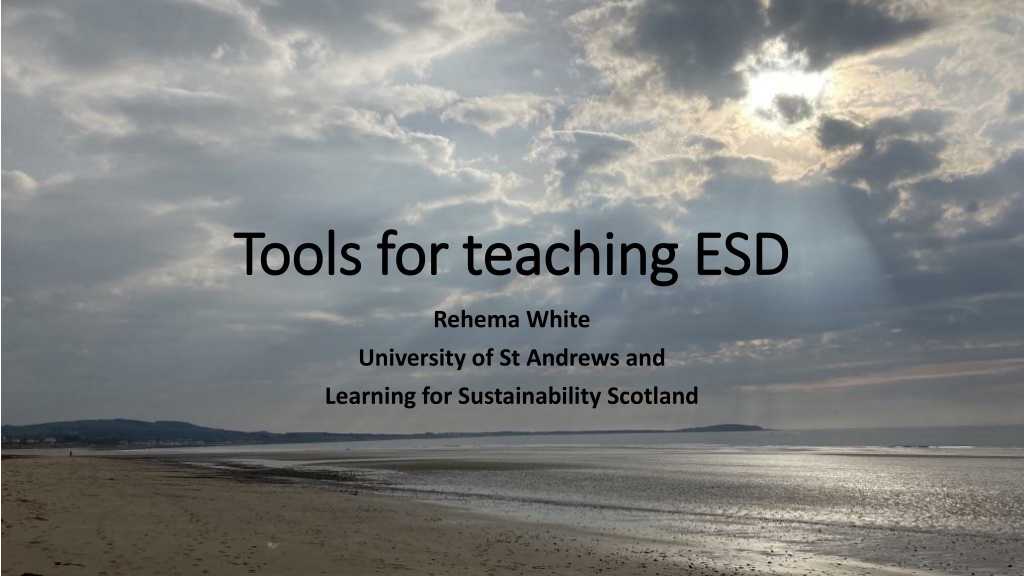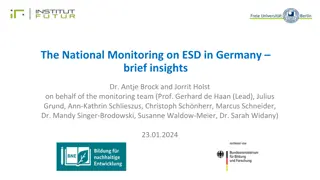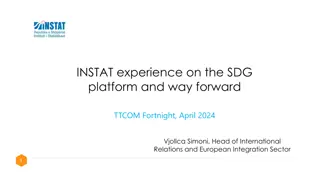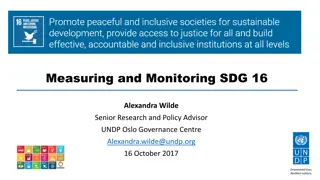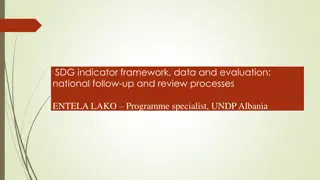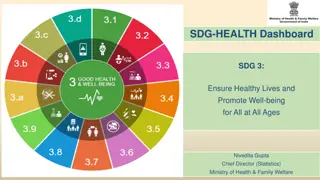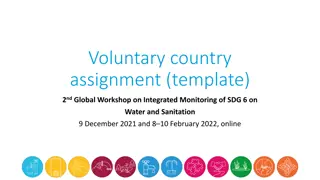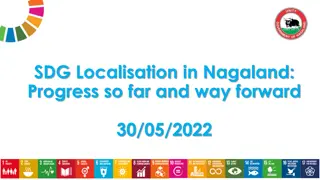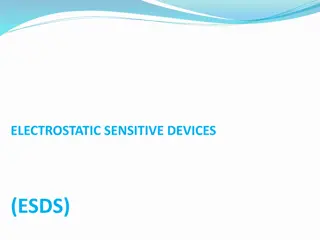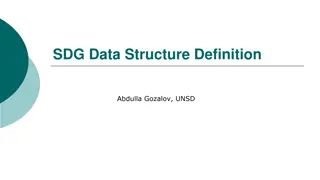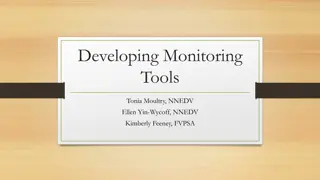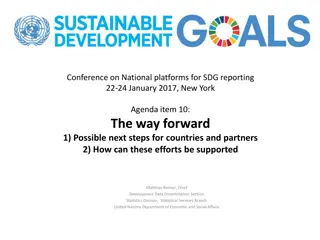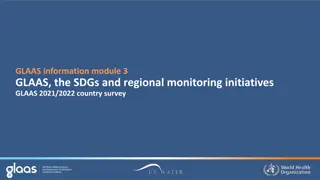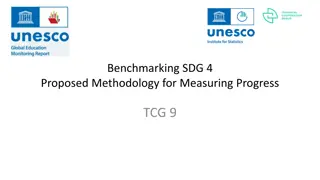Tools for Teaching ESD by Rehema White: A Resource for Holistic SDG Progress Monitoring
Explore theoretical frameworks and practical tools for mapping and monitoring progress against the SDGs across sectors, communities, and businesses. This resource aims to inform the selection of mapping tools, providing valuable insights for sustainable development initiatives.
Download Presentation

Please find below an Image/Link to download the presentation.
The content on the website is provided AS IS for your information and personal use only. It may not be sold, licensed, or shared on other websites without obtaining consent from the author. Download presentation by click this link. If you encounter any issues during the download, it is possible that the publisher has removed the file from their server.
E N D
Presentation Transcript
Tools for teaching ESD Tools for teaching ESD Rehema White University of St Andrews and Learning for Sustainability Scotland
Aims of our brief 1. Explore theoretical frameworks to interpret the holistic vision of the SDGs 2. Describe existing practical tools that can be used to map and monitor progress against the SDGs by sectors, communities, businesses or enterprises 3. Inform the choice of a practical mapping tool for our project. 4. Provide a resource for further programmes Ross 2021
ORGANISATIONAL STAKEHOLDERS INTERACTIONS UNDERSTAND INTEGRATION INDICATOR& MILESTONES VALUES AND TARGETS , MAPPING IDENTIFY PROGRESS REVIEW UTILITY PURPOSE SDGs Table 1: Matrix of tools by SDG integration function Tool T1 T2 T3 T4 T5 Stakeholder analysis matrix Stakeholder engagement matrix Theory-U UN SDG Knowledge Hub EcoliseWiki All All Any organisation or group with sufficient time All Communities T6 Land Portal Primarily Government, but also others for the land T7 Gaia Education SDG Flashcards etc Communities and Government primarily Global Ecovillage Map of Regeneration Scottish National Performance Framework Communities, but also applicable to groups, projects, organisations, and even countries Government primarily, Scottish communities and businesses secondarily Research and educational institutions, companies, entrepreneurs, civic organisations, and public agencies Funding agencies T8 T9 T10 SDG Impact Assessment Tool T11 Global Goals Mapping Tool T12 SDG Interactions Framework Government, researchers, communities Government, researchers, to some extent communities T13 SDG Synergies Approach Scotland Can B Impact Culture Events & Economy Advisors Training Global Ecovillage Network Impact Assessment T14 Business people and business advisors Communities, but also applicable to groups, projects, organisations, and even countries Businesses, but it can be used by not-for-profit organisations, with sections that are not relevant being ignored Companies of all sizes but the process the tool outlines T15 T16 SDG Action Manager
Global Ecovillage Network Map of Regeneration https://ecovillage.org/projects/map-of-regeneration/
Activity with Map of Regeneration Define context, scale and scope of the exercise Each person highlights 3-6 areas of strength and of weakness or neglect in the community Use as basis for mapping, discussion of scope and interconnectivity of SD issues, visioning what a regenerative deign might look like, reflection on diversity of perspectives Links to SDGs via impact assessment and the GEN cards Could use to identify areas of focus for class projects, to encourage diverse dissertations etc
Example University of St Andrews community mapping by students in one class area topic +ve -ve Social Diversity 14 ESD 17 Health 9 7 Cultural Reconnecting with nature 13 Indigenous knowledge 16 Ecological Renewable energy 16 2 Waste 2 14 Economic Equitable land Responsible consumption Design Address privilege 2 17 Systems thinking 2
